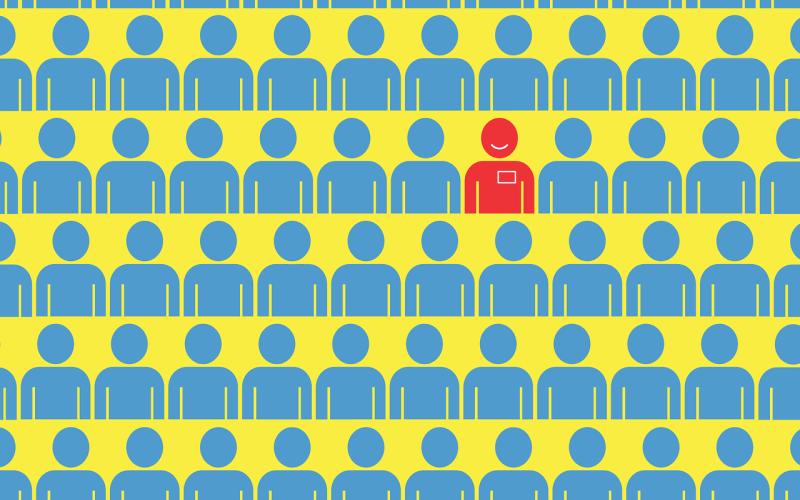We live in a world where technology brings us closer than ever, but it also has an unexpected side effect: it’s making us more alike.Every day, we’re scrolling through the same social feeds, following similar influencers, and consuming content that’s designed to appeal to the masses. The constant exposure to digital media can subtly nudge us toward sameness, impacting how we see ourselves, express our personalities, and even what we value.
At the heart of this trend are algorithms, those hidden decision-makers behind platforms like Instagram, YouTube, and TikTok. These algorithms are designed to show us what’s popular or what’s “trending,” leading us down a path where our feeds become an echo chamber. Instead of discovering unique interests, we’re often shown content similar to what we already like—or what a majority of people like. Over time, these repetitive feeds shape our preferences, pushing us toward what’s popular rather than what’s personal. For example, fashion trends and lifestyle choices can be heavily influenced by a few viral posts. We see the same outfits, room decor, or recipes replicated by thousands, creating a loop of sameness. While trends can be fun, they also blur the lines between self-expression and imitation.
Social media, especially, can create pressure to conform. In a space where likes, comments, and shares define “success,” many of us feel compelled to present an image that fits certain expectations. This isn’t always intentional, but the drive to post what’s well-received, to be “on-brand,” or to join in on trending challenges subtly pushes us toward a certain uniformity. When one attempts to comment a different perspective on a topic in a particular comment section with a particular viewpoint, they often get bombarded with hate messages – sometimes even doxxed. It thus becomes hard to share true ideas when afraid of others on the internet. This need to “fit in” can stifle genuine self-expression. Instead of exploring interests or hobbies that feel authentic, we might find ourselves sharing what we think others want to see or what’s likely to get the most engagement. Over time, it’s easy to lose sight of what we truly enjoy, as we’re caught up in presenting an online persona that blends into the crowd.
The rise of influencer culture also plays a role here. Influencers are skilled at creating polished, idealized versions of life that can be hard to separate from reality. As they set the standard for what’s “cool” or “inspirational,” they create a kind of template lifestyle. Following influencers can be inspiring, but it can also pull us into lifestyles, aesthetics, and values that don’t truly resonate with who we are. We might feel compelled to mimic their choices, from fashion to daily routines, even if they don’t align with our actual tastes or needs. When everyone has the same viewpoint, there’s little room for discussion and the eventual finding of what we truly believe in.
All this said, can we truly eradicate deterioration of individuality on social media? Let’s begin by stopping to be mindful of what we’re consuming and why. Are we drawn to something because it genuinely interests us, or because it’s popular? By asking these questions, we can push back against the forces that lead us toward sameness and embrace the aspects of our personalities that make us unique.




